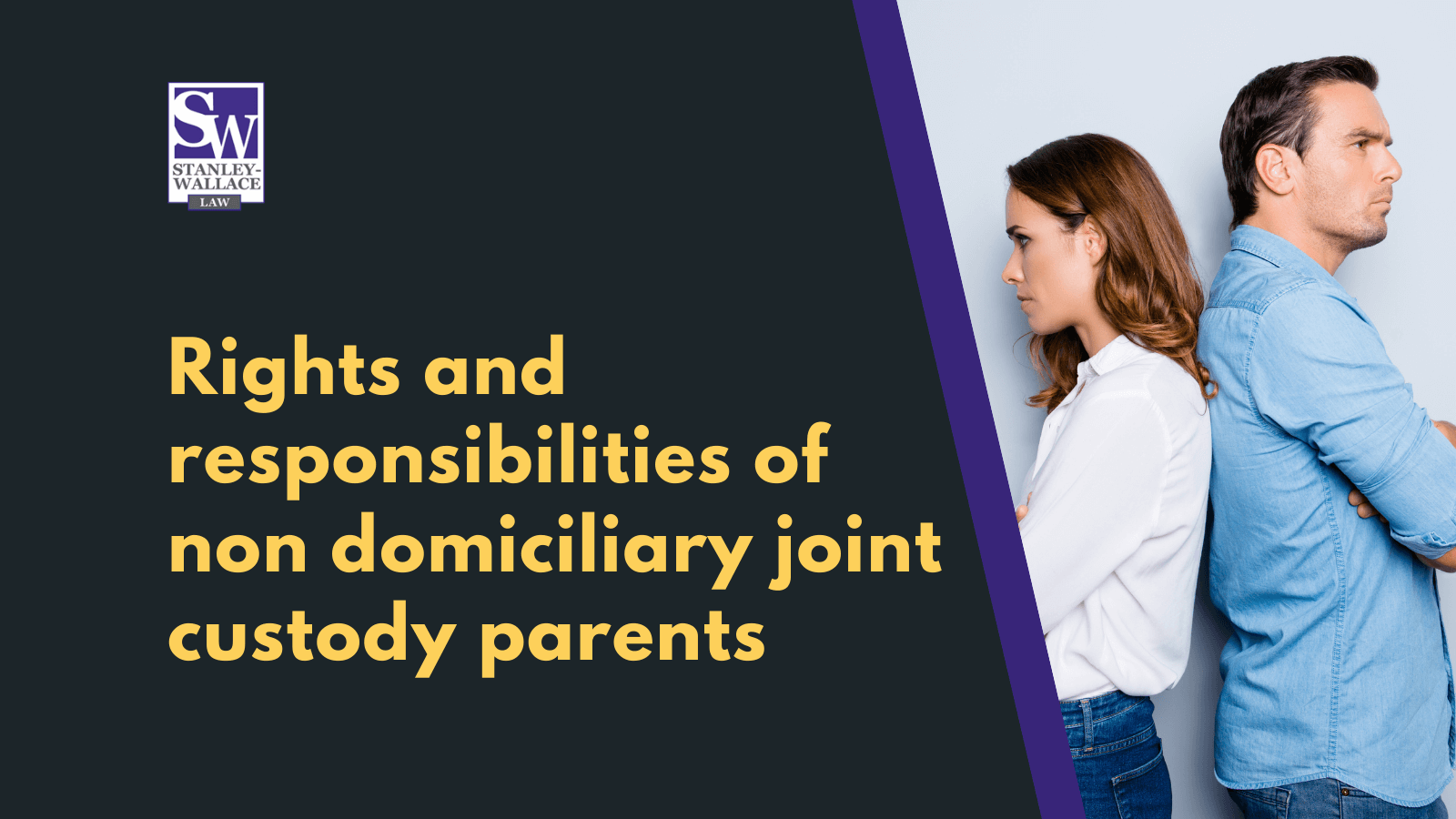Many families have to go through divorce and child custody battles.
After the dust settles, hopefully the end result is an arrangement that is in the best interest of the child.
So what happens when only one parent is granted domiciliary rights? In Louisiana, non-domiciliary parents have certain rights when it comes to their children — but of course, these rights also come with responsibilities.
BEST INTEREST OF THE CHILD
While it would be wonderful if custody battles worked out well for everyone involved, the main concern is always what is best for the child in question.
This could mean both parents get joint custody, it could mean one parent gets sole custody, or it could mean that a relative is given custody of the child if there are extraordinary circumstances. Whatever happens, the goal is that the child is in the best situation and environment possible.
Sometimes the arrangement the court believes is best is joint custody. Joint custody can be where the child primarily lives with one of the two parents (the domiciliary parent). The domiciliary parent is the parent “with whom the child shall primarily reside.” La. R.S. 9:355(B)(2). A joint custody arrangement can also be a “shared” physical custody arrangement where the parties share the physical custody of the child equally. More on that in a later blog post. This post primarily deals with a joint custody arrangement where the child lives primarily with one parent.
OBLIGATION TO CONFER
The main obligation of parents awarded joint custody of their child or children is the obligation to discuss information regarding the child or children. La. R.S. 9:366 states:
Joint custody obligates the parents to exchange information concerning the health, education, and welfare of the child and to confer with one another in exercising decision-making authority.
Although the domiciliary parent has the authority to make the decisions affecting the child (unless there is a joint custody implementation order providing otherwise), that domiciliary parent is still obligated to communicate regarding the child before making those independent decisions. This gives the non-domiciliary parent not only the obligation to communicate regarding the child, but it also gives them the right to weigh in on important decisions regarding the child’s life.
VISITATION RIGHTS
According to Louisiana law, a child shall have frequent and continuing contact with both parents under a joint custody decree, unless it is not in the best interest of the child. This frequent and continuing contact could include a shared custody arrangement where the parties share custody of the child equally – 50/50 – again, more on that in a later post.
Some examples of visitation schedules could include:
- Visiting for dinner once a week, and then every other weekend
- Visiting every weekend
- Visiting every 1st, 3rd, and 5th weekend of every month
- Visiting every 2nd, 4th, and 5th weekend of every month
Non-domiciliary parents also have the right to visit their children on holidays. Depending on what the parents and court agree to, this could mean a whole holiday or part of a holiday.
However, while visitation rights are important, to the court, the child’s best interest is the most important consideration. The child’s best interest trumps all other factors, including with visitation rights.
CONSIDERATIONS OF THE COURT
When deciding whether or not to grant visitation rights to the non-domiciliary parent, the court may consider several different factors, including:
- The quality of the non-domiciliary parent’s relationship with the child
- The parent’s ability to provide for the child (food, water, shelter, clothing, etc.)
- The geographic locations of each parent
- The physical and mental health of the parent
- The child’s preference (depending on their age and/or maturity)
- History of drug or alcohol abuse
- History of violence or abuse
One of the most important of the above considerations is a history of violence or abuse.
If one parent has a history of violence or abuse, especially towards their child, they will likely not be allowed visitation rights, barring their participating in certain services. In the event that they are granted visitation rights, it will most likely be under special supervised conditions.
OTHER RIGHTS AND RESPONSIBILITIES
Other rights of the non-domiciliary parent may include:
- Having access to the child’s school and/or medical records
- Maintaining the right to report when the domiciliary parent is neglecting or abusing the child
Child support is one of the primary responsibilities of a non-domiciliary parent.
In most cases, the non-domiciliary parent will have to pay child support to the domiciliary parent. Exactly how much a parent must pay in child support varies from case to case, and is generally determined by a number of factors, including:
- The non-domiciliary parent’s gross income
- The domiciliary parent’s gross income
- The number of children involved
- Daycare costs
- Health insurance costs
- Amount of any child support or alimony expenses from previous marriages for either parent
Other responsibilities of the non-domiciliary parent may include:
- Acting in the best interest of the child
- Providing the child with food, shelter, medical care, and other similar needs during visitation times
- Abiding by the visitation agreement
- Providing emotional care to the child
It’s important for non-domiciliary parents to know both their rights and responsibilities.
Divorces aren’t pretty, and they can be even worse when a child is involved. Custody battles can be messy, frustrating, and downright devastating.
An experienced attorney can help you keep your head above water and guide you in the best direction, so you can maintain your rights and fulfill your responsibilities as a parent.
CONTACT STANLEY-WALLACE LAW TODAY
If you need to discuss custody rights and visitation in more detail, please get in touch with one of the dedicated family law attorneys at Stanley-Wallace Law as soon as possible. We have the experience you need on your side, and we are committed to putting you and your family first.


